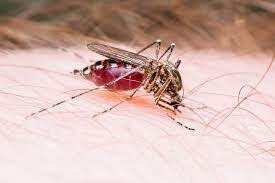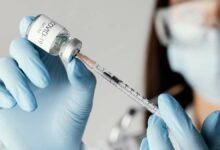Does the blood type of a person affect whether or not a mosquito will bite?
Throughout the summer, mosquitoes are a constant presence, and their bites may be rather uncomfortable. Why some people appear to attract mosquitoes more than others depends on a variety of circumstances. If your blood type plays a part in luring these bothersome insects, that is one fascinating subject that has come up. We’ll explore the science of mosquito preferences in this article, as well as the possibility that your blood type could play a role.
Knowing how mosquitoes behave
We must first appreciate how mosquitoes choose their prey in order to determine if blood type affects mosquito bites. There are a number of indicators that attract mosquitoes to people, including:
1. Emissions of Carbon Dioxide (CO2)
Carbon dioxide is released into the atmosphere when we exhale. Mosquitoes have a keen sense of CO2 levels, and they utilize this as their main cue that a meal is imminent.
2. Body Warmth
Mosquitoes are heat-sensitive, and they can sense the heat that comes from our bodies. Warmer targets are often more desirable.
3. Body Smell
Mosquitoes may be attracted by the aroma of human skin, which is controlled by our genes and the bacteria that live on our bodies.
4. Visual and Motion Stimuli
Mosquitoes react to movement and visual signals such contrasting colors, in addition to scent and heat.
Blood Type’s Influence
Let’s investigate the probable link between blood type and mosquito bites now that we know how mosquitoes find their prey:
1. Skin odor and blood type
According to certain research, people with particular blood types may have various skin smells. Mosquitoes are thought to be more drawn to certain scents, which may help to explain why certain individuals are bitten more often.
Secondly, blood type and CO2 emissions
While blood type alone has no effect on carbon dioxide output, genetically driven variables like metabolic rate and body size may. There may be a tangential relationship since increased CO2 concentrations attract mosquitoes.
3. Genetics and Blood Type
The makeup of skin microorganisms and blood type are both influenced by genetics. According to some research, the interaction of these genetic components may affect a person’s attraction to mosquitoes.
The Finding
It’s important to remember that mosquitoes are very opportunistic feeders, even while there is some research that suggests that blood type may have a slight impact on mosquito attractiveness. They are affected by a variety of things, such as body heat, smell, movement, and even the color of one’s clothes.
Therefore, it would be oversimplified to assert that your blood type is a firm predictor of whether or not mosquitoes would bite you. You are not doomed to be a mosquito magnet just because you have a blood type that mosquitoes could find more enticing.
Prevention of Mosquito Bites
Think about the following useful advice to reduce mosquito bites:
Use repellents, first
To protect exposed skin from mosquitoes, use insect repellent with DEET or other powerful chemicals.
2. Put on protective attire
Wear long sleeves and trousers to stay covered, particularly when mosquito activity is at its highest.
3. Get rid of breeding grounds
Eliminate any standing water around your property to lessen mosquito breeding areas.
4. Use insect-nets
In order to avoid bites at night, sleep behind a mosquito net. In conclusion, although your blood type may inadvertently attract mosquitoes, mosquitoes take a variety of things into account when deciding where to find their next meal. It is preferable to take preventative steps, such as applying repellents, wearing suitable clothes, and getting rid of mosquito breeding grounds, to avoid those irritating bites. Don’t entirely attribute the cause to your blood type since mosquitoes are opportunistic biters that may be avoided by taking the proper measures.







